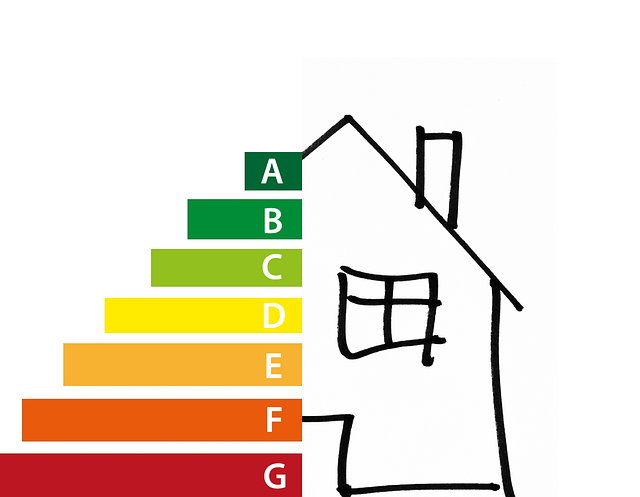As the rental market changes, property owners need to keep up with new trends. Tenant expectations are rising, regulations are becoming stricter, and local governments are increasing their oversight. Navigating the next few years may feel complicated.
Looking ahead to 2026, property owners will face even more challenges.
According to Landlord Knowledge, about 42.3% of privately rented homes in England will need to meet the new EPC C standard. This means around 1.82 million homes will fall short and receive a rating of D or lower.
Landlords should prepare for shifts related to Energy Performance Certificates (EPCs), licensing programs, and growing tenant demands for quick fixes. Understanding these changes now is essential to keeping your properties compliant, competitive, and even well-maintained.
Ready to learn what’s next for landlords? Let’s get started.
The EPC Upgrade Requirements for Landlords
The rules for EPCs are changing. Landlords need to upgrade their properties to meet new energy-efficiency requirements. This might involve investing in insulation, heating systems, and other energy-saving measures.
Landlords with properties in areas like London should start these improvements soon, as the deadline for compliance is nearing fast.

Selective Licensing Schemes and Local Authority Regulations
Landlords should monitor the expansion of selective licensing across the country. These programs require landlords in certain areas to get a license to rent their properties.
Selective licensing is becoming more common, especially in cities like London, where the government is paying more attention to rental property rules. These rules help make sure that properties meet specific standards and that landlords take care of repairs and maintenance.
Landlords must understand that local authorities are stepping up enforcement of these programs. This means they are focusing more on whether landlords are following the rules. Not following licensing regulations can result in hefty fines, so it’s crucial to know the guidelines for your area and stay updated on any changes.
Property owners need to stay updated on the latest changes to property licensing laws. This ensures they follow local government regulations.
Tenant Expectations: Condition, Repairs, and Quick Response Times
Tenant expectations about rental properties and repairs are changing. In 2026, renters care more about how their rental properties are kept up, particularly in terms of prompt fixes when issues arise.
UK law requires landlords to keep their rental properties safe and livable. This means they must do regular maintenance and respond quickly to repair requests.
Landlords should address repair requests within 24 to 48 hours. They also need to keep accurate records of repairs, inspections, and maintenance to follow the law and show they care about their tenants.
Quick repairs not only help meet legal requirements but also improve tenant satisfaction and loyalty. Happy tenants are more likely to stay longer, which reduces turnover and vacancy rates.
Recent data from Canterbury found that 64% of tenants are unhappy with the time it takes to complete repairs. This highlights the importance of immediate maintenance for keeping tenants satisfied.
Proactive Property Management: Navigating the New Environment
The property management scene in 2026 is more complex than ever. With new rules and rising tenant demands, landlords can no longer manage properties passively. They need to stay alert to ongoing changes.
Landlords must keep up with updates on local licensing rules and EPC standards. They should also stay informed about new laws and keep detailed records of all inspections and maintenance. It’s essential to create a proactive maintenance plan to fix problems before they get worse.
Planning for upcoming improvements to EPC standards is also key. With the deadline for new EPC rules approaching, landlords who wait could face unexpected expenses. Preparing for these upgrades now will reduce stress later on.

Under proposed MEES updates, all new tenancies must meet an EPC rating of C or above by 2025, and existing tenancies by 2028. Yet, nearly 60% of rental homes still fall short of this standard, according to GOV.UK.
At the same time, local authorities are expanding selective licensing schemes, and landlords are expected to handle repairs quickly, maintain detailed records, and meet rising tenant expectations.
A spokesperson from City Borough Housing noted:
“The nature of property management has shifted. Landlords are having to navigate a much more regulated environment in London; where compliance, maintenance, and documentation are all under increased scrutiny.
Our advice is to stay proactive: track changes to licensing rules in your borough, keep digital records of repairs and inspections, and budget now for future EPC upgrades rather than waiting for deadlines to hit.”
Conclusion
As 2026 approaches, property owners must take action to stay competitive. Following the new EPC upgrade standards, carefully managing selective licensing programs, and quickly addressing tenant repair requests are essential for running a successful rental business.
By staying informed, keeping clear records, and budgeting for necessary improvements, property owners can tackle these challenges and thrive in a changing market.
Preparing today will ensure your success tomorrow; don’t let the changes catch you off guard.




